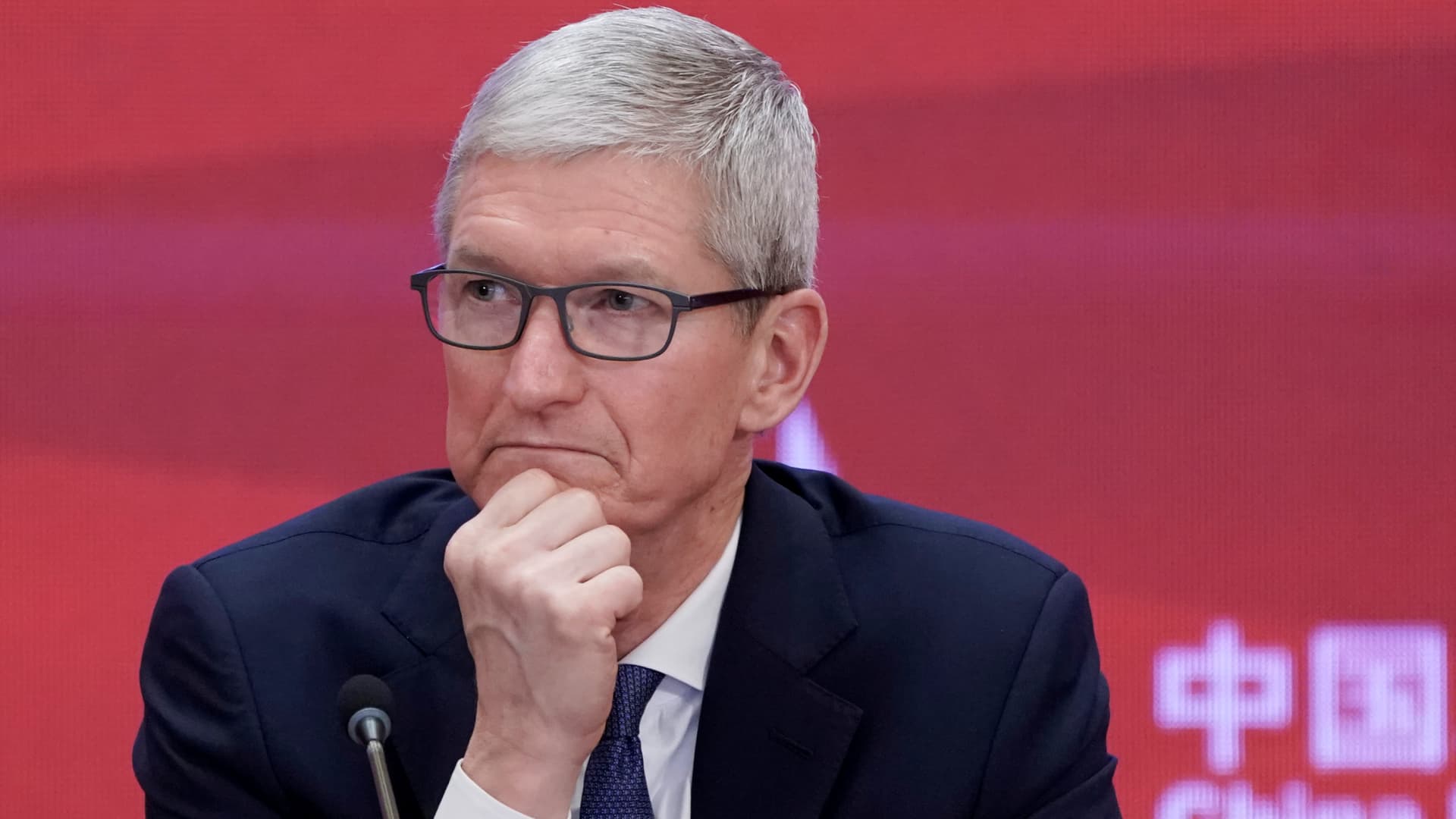Apple shares fell over 3% on Thursday, following a 4% decline on Wednesday, after several reports suggesting that Chinese government workers could be banned from using Apple iPhones.
The reported restrictions, which have not been publicly announced by the Chinese government, raise concerns that Apple’s products could get caught up in international tensions between the U.S. and China.
Greater China, including Hong Kong and Taiwan, is Apple’s third-largest market, accounting for 18% of Apple’s 2022 revenue of $394 billion. It’s also where the vast majority of Apple products are assembled. Apple declined to comment.
China has ordered officials at central government agencies not to bring iPhones into the office or use them for work, The Wall Street Journal reported on Wednesday, although it was unclear how widely the bans were issued. The ban could spread to other state companies and government-backed agencies, Bloomberg News reported on Thursday.
While a ban on all government employees could reduce iPhone unit sales in China by as much as 5%, Bernstein analyst Toni Sacconaghi wrote in a Thursday note, it would be a larger threat to Apple if the bans sent a signal that everyday Chinese citizens should instead use electronics from Chinese companies.
“Perhaps more importantly, restricted use of iPhones among government employees could negatively impact sales among consumers (related family members; general populace) and could be part of a broader move by the Chinese government to promote usage of domestic technology,” Sacconaghi wrote.
Dan Niles, portfolio manager at Satori Fund, said on Thursday he sold his stake in Apple and is now shorting the company, citing the possibility of a government iPhone ban and increased competition from Huawei.
New competition
Last week, several Chinese retailers started taking orders for a new Huawei phone, the Mate 60 Pro, which quickly became a hot topic on social media in the country.
The phone starts at 6900 RMB, or about US$954, and uses a Chinese-manufactured chip from Huawei’s chip subsidiary, HiSilicon. Early tests suggest that the phone can access 5G speeds, although Huawei’s specification pages don’t mention it.
Huawei was placed on the U.S. entity list in 2019 over fears that its technology could give the Chinese government backdoor access to communications. The move requires U.S. companies like Google and Qualcomm to get permission from the U.S. government before supplying Huawei. The sanctions significantly hampered Huawei’s phone business, which was rising before the sanctions, forcing it in recent years to spin off some of its phone brands and contributing to a $12 billion shortfall back in 2020.
Huawei’s new phone has a chip, manufactured on China’s mainland, that uses the 7-nanometer production process. Smaller production processes tend to translate to faster and more efficient chips. This year’s upcoming iPhone is expected to use a 3nm process, manufactured by Taiwan Semiconductor, and Apple first went with a 7nm process to make its A12 chips, which were used in new iPhones in 2018.
But Huawei’s chip raises questions about how well separate restrictions on chip manufacturing technology, which aim to prevent Chinese companies from making cutting-edge processors, are working.
“From my perspective, what it tells us is that the United States should continue on its course of a ‘small yard, high fence’ set of technology restrictions focused narrowly on national security concerns, not on the broader question of commercial decoupling,” Jake Sullivan, U.S. national security advisor, said Tuesday in a briefing.
In Apple’s most recent quarter, ending in June, Greater China sales grew 8% on an annual basis to $15.76 billion. It was Apple’s fastest-growing region. On the company’s earnings call, Cook said Apple was seeing users switch from Android phones to iPhones, mentioning that was “at the heart” of Apple’s results.
“We continue to try to convince more and more people to switch because of the experience and the ecosystem that we can offer them,” Cook said.
